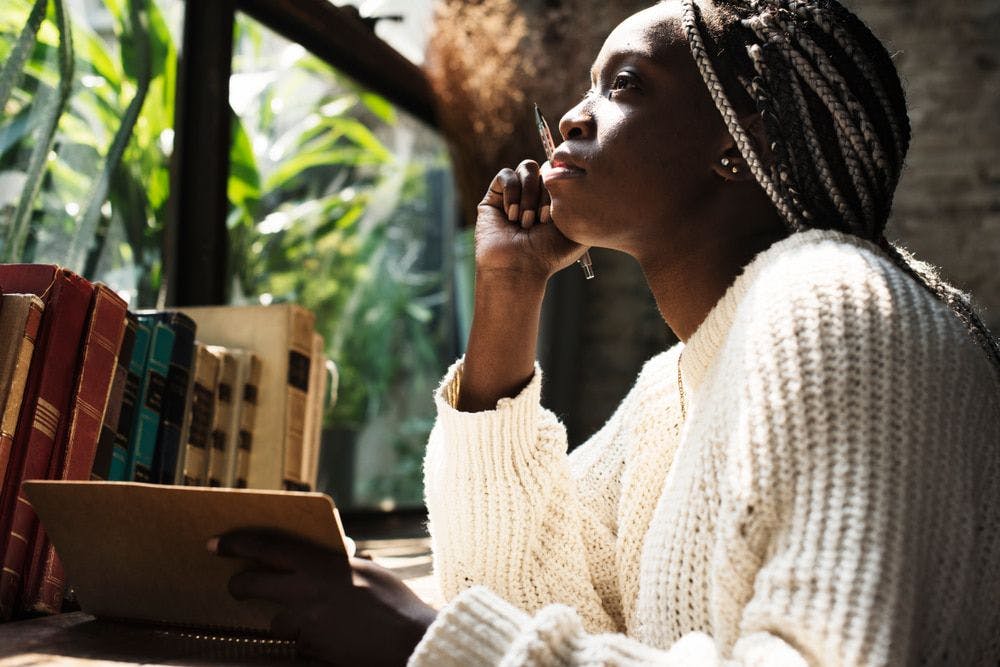
Covid-19 has brought with it both direct and indirect traumas. Here, with the help of a psychotherapist, we explore how you can begin to process, validate, and heal from this experience
Something truly transformational has happened over the last 12 months. In the first lockdown, many of us were forced to stop. And in doing so, we were given space to reflect on our life choices and consider how we wanted to move forward. This process was challenging for many of us. We began to consider how happy we truly were and what would need to change in order for us to be fulfilled. It was a time of reflection on a renewed commitment to self. As painful as some of this work was for us, it largely resulted in a reengagement with the self, a renewed connection with our wants and passions, and a refinement in how we were choosing to live.
Since then, it feels as though a new kind of fog has descended. The reflecting has stopped, the isolation intensified and the motivation for change and connection has waned. It feels as though the entire world has been gripped by a dense air of depression and it gives me pause to consider how we're coping with the trauma of living in this pandemic and what we can do now to heal, after living through such an intense, painful, and harrowing experience.
As human beings, we are incredible at adapting to different environments and circumstances, and lockdown has demonstrated this to us more than ever. There are mutterings about mental health and the need to care for those more vulnerable to mental unwellness, but I think we all need to consider how we begin to heal from this experience. For those of us in some sort of mental health recovery, we have already suffered various traumas and learnt multiple strategies to cope and to survive. We are familiar with the internal rumblings of anxiety or a brewing depression that needs to be attended to, but for many of my, otherwise high functioning friends, this experience has hit them emotionally and mentally like a freight train.
As well as the direct traumas that the pandemic has caused – the deaths, illness, job losses, and hardship – the pandemic has also called into question our life choices: opportunities missed, loves lost, parts of ourselves we have come to realise that we have abandoned. I think that these aspects have also been traumatic and need addressing.
The most important factor in healing from trauma is validating our experience. Acknowledging that things have been hard and that we need to nurture ourselves is key in beginning to address and tend to these wounds.

Five ways you can begin to heal
Share
Talk to people about how you are feeling and what this whole experience has brought up for you. Shame keeps us silenced and isolated, be brave and take a risk to talk to a friend about what you’ve been going through.
Kindness
Be extra kind to yourself. Nurture a loving and compassionate way of speaking to yourself. We live in a world that is very focused on seeing the differences between us, and if there is anything that this pandemic has shown is that it is undiscriminating. We are all being impacted. Let’s strive for a stronger sense of togetherness and kindness and understanding toward others. Gratitude heals. Investing in this perspective will help us on our own healing journeys as well.
Self care
Routines and ritual are restorative for us. Try to create rhythms of self-care that include meditation, exercise, and clear boundaries around work and home time. Use this time to create habits that you want to maintain after lockdown ends.
Future self journaling
Imagine what life will be like in six months’ time. What are the things you want to be doing, where do you want to be going and with whom? How will you, with the experience we’ve just been through, handle the world and whatever it throws at you moving forward? By looking forward, we’re reminded this is temporary and things will get better.
Vision board
Create a vision board to collect everything you feel inspired by, anything you want to manifest or nurture in your life. I create areas that focus on different themes, like relationships, travel, career, and personal development. You can then add in aspirational quotes, images of inspiring role models and motivating images to keep your focus forward-looking and hopeful.
Laugh
It’s so important to invite light into our lives when we feel surrounded by so much darkness. Seize opportunities to laugh and to share humour.
In flipping the pandemic on its head, we can take some positivity from it. The pandemic has provided us with is an opportunity to elevate our self-care so that we are being mindful of our emotional and physical needs rather than having to react in a personal crisis that sneaks upon us.
Emmy Brunner is a psychotherapist, hypnotherapist, personal empowerment and transformation coach, CEO, author and speaker with more than 20 years’ experience. Emmy’s first book, 'Find Your True Voice' (Penguin Life) is launching May 2021. For more from Emmy, visit emmybrunner.com or follow her on Instagram.
Connect with a counsellor with counselling-directory.org.uk

